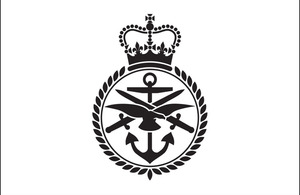International defence engagement strategy published
A new strategy has been published outlining how international defence engagement will be better focused towards contributing to wider government objectives.

The International defence engagement strategy sets out how all defence activity, short of combat operations, will focus efforts on those countries which are most important to our national interests.
The strategy includes 4 pillars of defence: defence diplomacy, support to operations, exports and building stability. It ensures Britain is developing relationships and influence over a longer-term 20-year horizon so that we achieve our objectives in a period of significant uncertainty and change.
First examples of the new strategy in practice are:
• establishing a new Defence Attaché and Defence Section in the British Embassy in Burma
• closer work with Libya including advice to train its military, especially its Navy and Air Force, and helping to establish bomb disposal and defence language schools
• plans to open a new Defence Section in the new British Embassy in Mogadishu, Somalia
• recently opening a Defence Section in Juba, South Sudan
The Ministry of Defence is also exploring ways of using Army capabilities on a wide range of defence engagement tasks and will pilot this as the Army restructures its Adaptable Force Brigades as part of Army 2020.
The strategy has been developed by the MOD and the Foreign and Commonwealth Office in consultation with other government departments. £6 million of funding has been made available for this work through reprioritising existing budgets.
Defence Secretary Philip Hammond said:
Defence, and in particular the Armed Forces, plays an important role in delivering Britain’s international objectives, drawing on our reputation and capabilities.
This strategy is welcome at a time of limited financial resources, providing a means to focus our assets and activities such that we can make an even greater contribution to securing a safe and prosperous future for the UK.
Foreign Secretary William Hague said:
The publication of the International defence engagement strategy will help the UK to work more effectively to deliver our foreign policy objectives, delivering an integrated approach drawing on all of the levers of power across government.
The strategy sets out how non-operational defence assets and activities will in future be allocated to better contribute to wider governmental objectives and goals in the future.
It is in line with the Strategic defence and security review vision for an integrated approach to meeting our international objectives and it builds on the National security strategy.
This concluded that we must use all of our national capabilities to build Britain’s prosperity, extend our nation’s influence in the world and strengthen our security.
Defence assets and activities play an essential and unique role in delivering the UK’s strategic aims, complementing our diplomatic, development, intelligence and trade promotion tools.